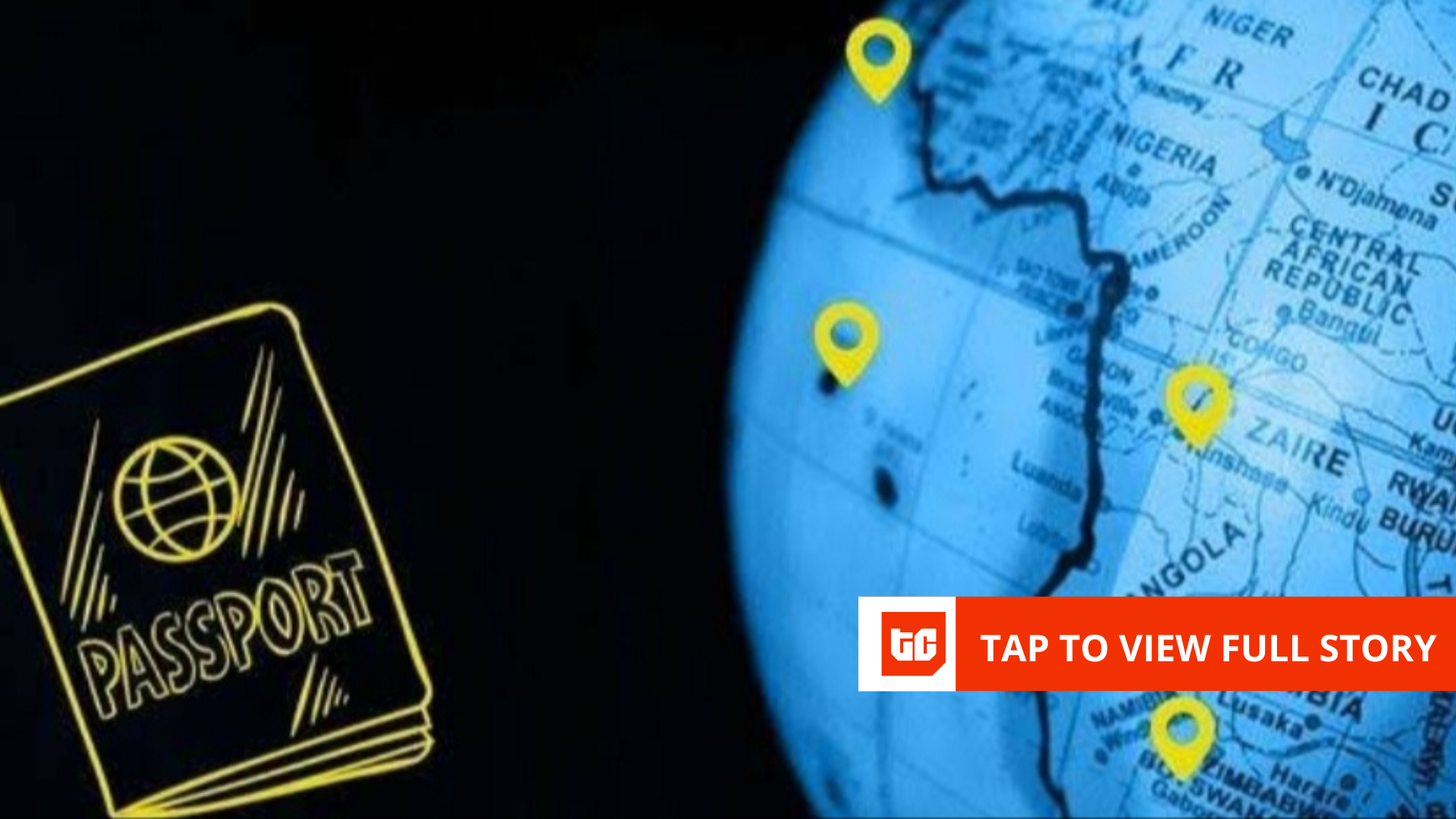In 2025, it’s hard to recall how people worked before the pandemic. At , we had an office chat about it: millennials shared the lore of setting out for the office at dawn and returning home late like clockwork. The Gen Zs among the bunch (myself included), the newest entrants to the corporate workforce, struggled to imagine that kind of routine.
Before remote work became a lifestyle, it was a privilege. Only a handful of tech workers, freelancers, or travelling consultants (especially in big consulting firms) had the liberty of working beyond office buildings. But when the pandemic struck in 2020, the workplace was forced to reinvent itself.
For the first time, millions of employees discovered that, with a laptop and a good internet connection, they could work from anywhere. This unintentional global experiment gave rise to a new breed of professionals: digital nomads—more a lifestyle than a job title—which has gained popularity over the years.
In 2018, there were 4.8 million self-described digital nomads in the world; by mid-2020, that number more than doubled to 10.9 million. Most of them were creative professionals, IT and tech workers, and digital entrepreneurs.
For many of these career professionals, access to a new country was through a tourist visa. These were great for short-term stays and sightseeing. Governments couldn’t keep the foreign money from these visitors circulating in the economy longer.
In 2020, as digital nomadism grew in popularity, governments began to respond with specific visa categories that allowed medium to longer stays, came bundled with a work permit, and even exempted the holder from paying income tax in their host country.
While digital nomads earn money elsewhere, they spend locally on small businesses (like co-working spaces), housing, food, internet, transportation, and entertainment. This keeps foreigners’ cash circulating in local economies, and governments didn’t have to bother with these foreigners competing for jobs with locals. Today, a South African digital nomad contributes $2,700 monthly to the country’s economy, per African Business.
Barbados and Estonia were two of the world’s first countries to introduce the digital nomad visa in June and August 2020 respectively. These early adopters saw digital nomad visas as economic levers, and soon, other nations took notice.
Today, over 60 countries across five continents offer some version of a digital nomad visa. Five of them are in Africa.
Let’s take a closer look at how Africa tapped into this global shift.
How Africa tapped into the trend
Mauritius was Africa’s first country to introduce a version of the digital nomad visa, called the Premium Visa, in October 2020. It promised remote workers a tropical work-life balance with a year-long stay and no local income tax. Cape Verde joined a few months later, in December 2020, rolling out a Remote Working Programme that targeted European and American expatriates, hoping to lure them with low living costs and visa flexibility.
Seychelles followed in 2021 with its Workation Retreat Programme, offering similar perks under the same banner of “work in paradise.” Namibia came next in October 2022, framing its visa as a gateway to the sun’s warmth, silence, space, and safaris.
Then, in May 2024, South Africa entered the fray—later than most—launching its “Remote Work Visa” with a higher income threshold and a more formal tax framework, but with the same intent: to attract wealthy, mobile professionals whose money would linger even if they wouldn’t.
- Mauritius
Mauritius introduced the “Premium Travel Visa” in October 2020. It allows remote workers, freelancers, retirees, and even students to live and work on the island for up to 12 months, with an option to renew once, making a maximum stay of two years.
To qualify, applicants must:
- Be non-citizens intending to stay more than six months
- Work remotely for an employer or clients based outside Mauritius
- Show proof of income or savings—typically at least $1,500 per month, or equivalent savings of around $18,000 per year. An additional $500 per month is required for each dependent under 24
- Provide valid travel and health insurance for the duration of the stay
- Present proof of accommodation, return flight tickets, and a clean criminal record
The application itself is free. The visa also allows multiple entries, and visitors can enter on a tourist visa and convert to the Premium Visa after arrival, using the country’s online system.
Remote workers who stay under 183 days are not taxed locally on their foreign income. However, they are liable to pay income tax on money brought and deposited in a bank account in Mauritius—unless that money has been taxed in the worker’s home country.
But after that period of six months, nomads may be considered tax residents and subject to Mauritian tax rules, depending on how their income is managed.
As of 2022, Mauritius has reportedly approved over 2,000 digital nomad (Premium Travel) visas. However, there is no information on the updated figures.
- Cape Verde
Cape Verde launched its “Remote Working Programme” in December 2020. The visa is valid for six months and may be renewed once, bringing the maximum stay to one year, though renewal is not automatic. Its low cost and simple application process have made it a quietly attractive option for remote workers seeking Instagram-worthy landscapes while they work.
This visa is only open to Europeans, North Americans, Portuguese-speaking countries, and member countries of the Economic Community of West African States (ECOWAS).
To qualify, applicants must:
- Provide proof of remote work or business ownership outside Cape Verde
- Maintain an average bank balance of at least €1,500 over the past six months (or €2,700 for families)
- Hold a valid passport with six months’ validity
- Present recent bank statements, a clean criminal record, health and travel insurance, and proof of accommodation
The application is completed online and usually processed within two weeks. Upon entry, applicants pay a €20 visa fee and a €34 airport security fee. After arrival, they submit approval documents at border control and typically receive their visa stamp within a few days.
Though there is no exportable income requirement, the financial buffer requirement acts as the programme’s de facto threshold. Digital nomads entering under this visa are exempt from income tax in Cape Verde and are not considered residents for tax purposes. Personal and work-related equipment can be brought in without duties, provided the items are not sold locally.
When it launched its visa in 2021, Cape Verde set a target to issue 4,000 digital nomad visas over three years. While no official tallies exist, the share of foreigners in the country more than doubled from 2% to 4.7%—about 23,500 people—during this time, suggesting it likely met or exceeded this goal.
The island nation’s beaches, fair cost of living, and Portuguese‑Creole culture continue to draw attention.
- Seychelles
Seychelles introduced its Workation Retreat Programme in April 2021, offering remote workers the chance to live and work from the island nation for up to one year. The visa is non-renewable, though applicants can reapply once their term ends.
To qualify, applicants must provide:
- A valid passport with at least six months’ validity
- Proof of remote employment or business activity based outside Seychelles
- Recent bank statements or financial records demonstrating the ability to support themselves during their stay
- Proof of accommodation (such as a hotel reservation or rental agreement)
- Valid international health and travel insurance
- A return or onward travel ticket
There is no set minimum income requirement for nomads considering Seychelles, but authorities expect to see evidence of sufficient financial means relative to the cost of living in the country. From reports, foreign workers who earn at least $6,000 monthly could comfortably afford the country’s living costs.
The application is completed online and requires a processing fee of approximately $50. Decisions typically take between two to four weeks. Once approved, the visa allows a one-time, continuous stay of up to one year.
Digital nomads are not subject to local income tax, and they can bring in personal or work-related equipment without paying import duties, provided the items are not sold while in the country.
Seychelles has not released any official data on the number of digital nomads who have taken up this visa. As a result, the programme’s reach and impact remain largely undocumented.
- Namibia
Namibia launched its Digital Nomad Visa in October 2022. The visa allows remote professionals to live and work in the country for up to six months, and is not multi-entry—applicants must remain in Namibia for the full term without leaving and re-entering the country.
It is not currently possible to extend this visa, and re-application is only possible one year after the previous visa’s expiration.
To qualify, applicants must:
- Show proof of remote employment or freelancing for clients outside Namibia
- Earn at least $2,000 per month, with other thresholds for accompanying spouses ($1,000) and dependents ($500)
- Hold valid travel and health insurance
- Hold a passport valid for the duration
- Provide a clean criminal record and a medical certificate, including a radiological report (often used to screen for tuberculosis)
The process is online and costs a total fee of $124, payable on arrival. Processing tends to be straightforward, though applicants are bound by single-entry rules and limitations on re-entry within the same year. Tax-wise, digital nomads may be subject to local tax obligations after spending over 180 days in the country.
Since its launch, the visa has received 58 applications; 33 of them have been approved so far. Applicants have predominantly come from Germany, the United Kingdom, France, Canada, and South Africa.
Approved digital nomads are exempt from local work regulations and provide economic benefit by injecting foreign income into the local economy, without competing for jobs designated for Namibians.
- South Africa
South Africa entered the digital nomad visa race relatively late, but quickly positioned itself as one of the continent’s most attractive schemes.
According to a global visa index, South Africa ranks 21st overall, ahead of Cape Verde and Seychelles among African countries. The poll is based on how digital nomads themselves voted on factors such as cost, ease of application, and lifestyle appeal.
The government officially enacted the Remote Work Visa on May 20, 2024, after delays tied to tax regulation concerns. Applications formally opened in March 2025.
To qualify, applicants must:
- Earn a minimum gross income of R1 million ($55,000) annually
- Work remotely for a foreign employer or serve foreign clients
- Hold valid health and travel insurance, a passport with sufficient validity, and meet character requirements
- Apply at a South African embassy or Visa Facilitation Centre, and register with the South African Revenue Service if staying beyond six months
The visa allows a stay of up to one year, with possible extension for 3 more years. Those spending more than 183 days in the country within any 12 months must register with tax authorities and may be subject to local income tax, unless exempt under a tax treaty. Applicants staying less than six months may be exempt from tax registration.
According to data from Nomads.com, South Africa is home to 557,311 digital nomads and remote workers as of 2025. It is key to note that even before its digital nomad visa experiment, South Africa has long been a magnet for foreign expatriates.
Despite launching later than its peers, South Africa’s visa is now one of the most robust in Africa, combining generous stay durations, a structured application process, and one of the continent’s most compelling lifestyle offerings.
How Africa is courting foreign remote workers
Kenya’s “Class N” digital nomad permit—a noteworthy mention which launched in October 2024—extends this approach to East Africa. However, there are no records of live rollout yet.
As these schemes evolve, Africa could follow trends seen in Europe, where countries are beginning to lengthen visa durations beyond one year and offer clearer tax incentives to encourage longer stays.
At the same time, countries such as Rwanda, Ghana, Senegal and Benin are leaning into regional mobility, offering visa-free entries to make it easier for Africans to work remotely and build businesses across borders. While these versions are not yet formalised as digital nomad programmes, these moves suggest a future where remote work visas may not only target foreigners but also support digital mobility within the continent itself.
The digital nomad visa has not come without its challenges. Complaints have surfaced online about Westerners arriving with stronger currencies and distorting local economies. In Cape Town’s Bo-Kaap, for example, property owners are reportedly choosing short-term lets in upscale flats over monthly leases, pushing up housing prices and making it harder for locals to secure affordable accommodation in the city centre.
Yet, the most likely response from governments will be to double down on these visa schemes, and it’s not hard to see why. According to several estimates, in 2025, there are between 40 million and 100 million digital nomads worldwide working remotely while travelling. Here’s the math: if one digital nomad injects between $2,000–$3,000 per month into a local economy, capturing just 1% of that population could translate to billions of dollars annually in additional income for African countries.
However, there is a good reason for governments to step in and stabilise local market realities. Spending by high-earning foreigners can push up prices for housing and services, making life more expensive for residents. For example, in South Africa’s Cape Town, Mayor Geordin Hill‑Lewis proposed in February that property owners pay taxes on their short-term rentals, to discourage the act and ease up prices for long-term renters (typically local residents).
The digital nomad visa may have started as a response to plug lost revenue from tourism, but in Africa, it is steadily becoming part of a long-term economic vision.
Mark your calendars! Moonshot by is back in Lagos on October 15–16! Join Africa’s top founders, creatives & tech leaders for 2 days of keynotes, mixers & future-forward ideas. Early bird tickets now 20% off—don’t snooze! moonshot..com











